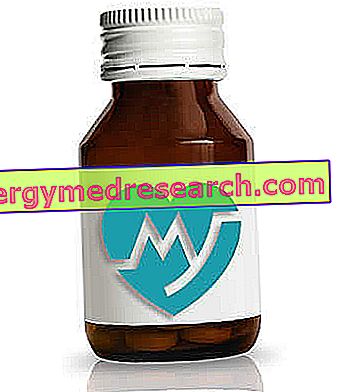
What is Increlex?
Increlex is a solution for injection containing the active ingredient mecasermin.
What is Increlex used for?
Increlex is indicated for the long-term treatment of growth failure in patients under the age of 18 years with "severe primary deficiency of insulin-like growth factor type -1" (very low levels of a hormone in the blood called a factor of insulin-like growth of type -1 or IGF-1). IGF-1 is necessary for growth. Patients with IGF-1 deficiency produce growth hormone, but their body produces no response, so they are smaller than their age. Increlex is used as the deficit is "primary", which means that no other causes have been identified for reduced IGF1 levels, such as malnutrition, low levels of thyroid hormone or steroid use (drugs used to reduce or prevent inflammations). For further information, please refer to the summary of product characteristics (also included with the EPAR).
Because the number of patients with primary IGF1 deficiency is low, the disease is considered "rare" and Increlex was designated an "orphan medicine" (a medicine used in rare diseases) on 22 May 2006.
The medicine can only be obtained with a prescription.
How is Increlex used?
Increlex treatment should be supervised by physicians experienced in the diagnosis and treatment of patients with growth disorders.
The recommended starting dose is 0.04 mg per kilogram of body weight twice a day. The dose should be tailored to each patient based on growth rate and side effects. The maximum dose is 0.12 mg per kilogram twice a day. Increlex should be administered subcutaneously, changing the site of administration each time. The medicine should never be injected into a vein. The injection should be made just before a meal or snack. Treatment should be stopped if the patient cannot eat for any reason. For more information, see the summary of product characteristics.
How does Increlex work?
The active ingredient in Increlex, mecasermin, is a copy of IGF-1. IGF-1 is very important in determining how much a child grows. This hormone, in fact, stimulates the division and growth of
cells and nutrient absorption, promoting the growth of body tissues. Increlex acts in the same way as natural IGF-1, replacing the missing hormone and contributing to the growth of the child's height.
Mecasermin is produced using "recombinant DNA technology": that is, it is obtained from bacteria in which a gene has been introduced that allows them to produce IGF-1.
What studies have been carried out on Increlex?
Increlex has been studied in five studies involving a total of 76 children aged between one and 15 years with severe primary IGF-1 deficiency, nine of whom had taken another type of recombinant IGF-1 before participating in these studies . Because the disease is rare, many of the children have been included in more than one study. In one study, Increlex was compared with placebo (a dummy treatment) in eight patients, while in the other studies Increlex was not compared to any other treatment. The duration of the studies was between 15 months and eight years and the main measure of effectiveness was the speed of growth.
What benefit has Increlex shown during the studies?
Increlex caused a significant increase in growth rate. If the results of all four studies are considered together, the growth rate was on average 2.8 cm per year before treatment. It grew to 8.0 cm in the first year of treatment and 5.8 cm in the second. The growth rate stabilized at around 4.7 cm per year starting from the fourth year of treatment.
Some studies have also been conducted on children with defects in the growth hormone (GH) gene who had developed antibodies against GH. The company submitted an application for authorization to use Increlex in these children, but withdrew the application at the end of the evaluation of the medicine, as this condition is not listed in the "orphan" designation of the medicine.
What is the risk associated with Increlex?
The most common side effects with Increlex (seen in more than 1 patient in 10) are hypoglycaemia (decreased blood glucose concentration), thymic hypertrophy (enlarged thymus gland, a gland located below the sternum involved in the production of antibodies), headache, hearing loss (hearing loss), tonsillar hypertrophy (tonsil enlargement), snoring and hypertrophy (swelling) at the site of administration. For the full list of all side effects reported with Increlex, see the Package Leaflet.
Increlex should not be used in people who may be hypersensitive (allergic) to mecasermin or other ingredients in the medicine. It must also not be used in patients with suspected or active cancer (abnormal cell proliferation). Increlex treatment should be discontinued if evidence of malignancy develops. Increlex should not be given to premature babies or newborns.
Why has Increlex been approved?
The Committee for Medicinal Products for Human Use (CHMP) decided that Increlex's benefits are greater than its risks for the long-term treatment of growth failure in children and adolescents with severe primary IGF-1 deficiency. The committee recommended that Increlex be given marketing authorization.
Increlex has been authorized in "exceptional circumstances". This means that, as the disease is rare, it has not been possible to obtain complete information on Increlex. The European Medicines Agency reviews each year the new information that may have become available and, if necessary, this summary will be updated.
What information is still awaited for Increlex?
The company that makes Increlex will carry out a long-term study to assess the safety of the drug, when treatment is started in young children and is continued into adulthood.
What measures are being taken to ensure the safe use of Increlex?
The Increlex company will provide information packages for doctors and patients, which will contain explanations on how to use the medicine and a description of its side effects.
The company will also provide dose calculators to help doctors and patients (or caregivers) prepare the correct dose.
Other information on Increlex:
On 3 August 2007, the European Commission granted a marketing authorization for Increlex, valid throughout the European Union, to Ipsen Pharma.
For a summary of the opinion of the Committee for Orphan Medicinal Products on Increlex click here.
The full EPAR for Increlex can be found here.
Last update of this summary: 07-2009.



